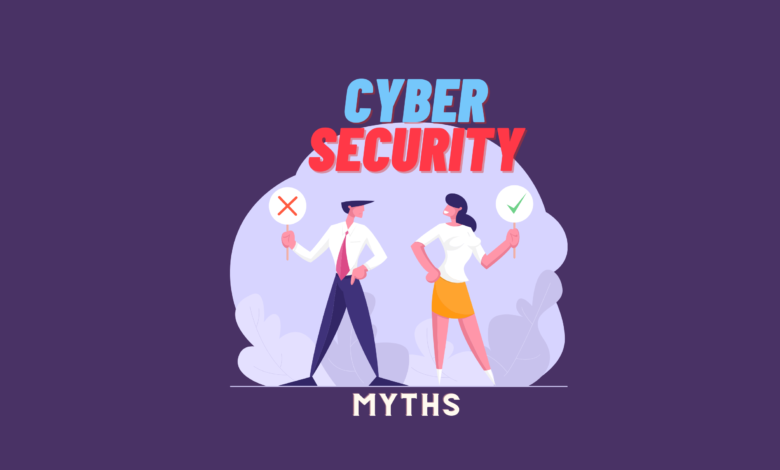Dissecting Cybersecurity Myths: Insights from Industry Leaders on Advanced Security Strategies

Organizations must clearly understand the cybersecurity landscape in an era of rapidly evolving cyber threats. Misconceptions continue to hinder many enterprises, leaving them vulnerable to attacks.
This article will debunk seven top cybersecurity myths and offer insights from industry leaders, including Jeremy Kushner, CEO of BACS Consulting Group; Aaron Kane from CTI Technology; and Lisa Mitchell with Progressive Computer Systems.
Myth 1:
Cybersecurity is an IT issue, not a business problem “Cybersecurity is an integral part of an organization’s overall risk management,” asserts Jeremy Kushner, CEO of BACS Consulting Group. “A successful security strategy must be aligned with the organization’s business objectives, ensuring that risk exposure is accurately assessed and effectively mitigated.”
Myth 2:
Small businesses aren’t targeted by cybercriminals Aaron Kane from CTI Technology emphasizes that SMBs are frequently targeted due to their perceived lower defenses. “Cybercriminals often view SMBs as soft targets, exploiting their limited resources and cybersecurity expertise,” he explains.
Myth 3:
Strong passwords are enough to keep data secure “Passwords are just the first line of defense,” says Lisa Mitchell with Progressive Computer Systems. “Organizations must adopt a defense-in-depth strategy that includes multiple layers of security, such as network segmentation, two-factor authentication, and continuous monitoring.”
Myth 4:
Cybersecurity solutions are too expensive for most organizations Kushner argues that cybersecurity investments are essential in today’s digital landscape. “The financial and reputational damage caused by a data breach far outweighs the cost of implementing a robust cybersecurity strategy. At BACS Consulting Group, we tailor our solutions to meet each client’s unique needs, ensuring that even budget-conscious organizations can protect their digital assets effectively.”
How BACS Consulting Group Elevates Cybersecurity:
- Managed Detection and Response (MDR): “Our MDR services combine state-of-the-art technology with expert analysts to provide real-time threat detection and rapid incident response,” says Kushner. “This approach minimizes the impact of cyberattacks and helps organizations maintain business continuity.”
- Perimeter Security: Kane emphasizes securing an organization’s network perimeter. “Advanced firewalls, intrusion detection systems, and secure web gateways are essential tools in the fight against external threats. These solutions help prevent unauthorized access and protect against malware and other forms of cyberattacks.”
- Vulnerability Scanning: Mitchell highlights the need for regular vulnerability scanning. “By identifying weaknesses in an organization’s infrastructure, vulnerability scans enable timely remediation and reduce the likelihood of successful cyberattacks.”
- Penetration Testing: Kushner believes that penetration testing is critical to a comprehensive security strategy. “Simulated cyberattacks reveal potential weaknesses in an organization’s systems, allowing them to address these vulnerabilities before malicious actors can exploit them.”
- IT Security Management: BACS Consulting Group offers various IT security management services, including risk assessments, security policy development, compliance monitoring, and employee training. “By providing organizations with a solid security foundation, we enable businesses to protect their digital assets better and safeguard their reputation,” Kushner explains.
Myth 5:
Cybersecurity is a one-time effort “Staying ahead of emerging threats requires a proactive and continuous approach to cybersecurity,” says Kane. “Organizations must regularly review and update their security policies and procedures to ensure they remain effective in an ever-changing threat landscape.”
Myth 6:
Traditional antivirus software is sufficient to protect against all cyber threats Mitchell cautions against relying solely on antivirus software. “While antivirus solutions are important, they cannot provide comprehensive protection against advanced threats. A multi-layered approach incorporating MDR, perimeter security, vulnerability scanning, and penetration testing is essential for defending against a wide array of cyberattacks.”
Myth 7:
Cybersecurity is only about technology “Although technology plays a significant role, the human factor cannot be ignored,” says Kushner. “Employees can inadvertently or intentionally expose organizations to cyber risks, making user education and awareness crucial components of a comprehensive cybersecurity strategy.”
BACS Consulting Group offers customized training programs to address this issue to educate employees on best practices and ensure they become active participants in their organization’s cybersecurity efforts.
In conclusion, debunking common cybersecurity myths and adopting a multi-layered approach to security is critical for organizations in today’s increasingly complex threat landscape. Insights from industry leaders Jeremy Kushner, Aaron Kane, and Lisa Mitchell emphasize the importance of a comprehensive, proactive security strategy that aligns with business objectives and incorporates both technology and human factors. By partnering with experts such as BACS Consulting Group, organizations can ensure their digital assets are secure, their risk exposure is minimized, and they are well-prepared to face the challenges of a constantly evolving cybersecurity landscape.
For more information visit our website.






